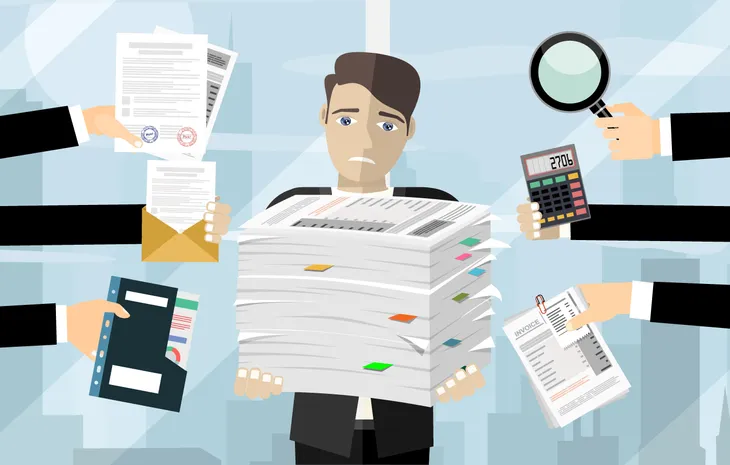Work can be stressful. It takes up much (or even most) of our time, and if it happens to be a source of anxiety in your life, as a mountain of studies have already indicated: that stress can take a terrible toll on both our mental and physical health.
The good news is that there are a number of simple ways to reduce workplace stressors. In this article we will help identify any potential stressors and how to take clear and practical steps towards limiting their impact on your everyday routine…
Feeling Like There Isn’t Enough Time
It may feel like we spend all of our time at work. And there’s a good reason for that feeling: the average work week consists of about 40 hours of work, or eight hours of work per day. Since most people get around 6- to 8-hours of sleep each night, that leaves only a handful of hours for exercise, eating dinner, and relaxing with friends and family.
The key to overcoming the feeling of not having enough time for work (or everything else outside of work) is setting realistic schedules for yourself. At the same time, be sure not to take on more tasks than you can accomplish within a reasonable deadline. Finally, be clear with your superiors about how long it takes to ably complete a given project.
Over-Multi-Tasking
There are few more useful workplace abilities than the ability to multitask. Being able to focus on several different things at once can help one worker set themselves apart from their competition in the office.
However, spreading yourself too thin can also create huge problems when it comes to stress. Taking on too many different projects all at once can prevent an individual from completing any of those projects in a satisfactory way, leading to criticism and, you got it, even more stress.
Fearing Change
We’ve all heard the statement “change is good,” but the problem is that many people simply don’t believe it. In fact, change can be one of the main causes of intense stress in the workplace, primarily because people often associate change with instability, or a chance they may lose their jobs.
If you work in an environment that’s undergoing change, try not to stress until you’ve received good reason to. Get as much information as you can, but until you’re told that your position is changing or being eliminated, don’t let it get to you. Remember, you simply can’t control everything and some change can be positive.
Feeling Insufficient
There are few more agonizing feelings than the feeling of insufficiency, or simply feeling like you’re not good enough to perform a task or your job. And while it’s good to take on new challenges, doing so without the right backing and information can be daunting and incredibly stressful.
But here’s the thing: just about everyone feels like they’re not good enough at one time or another. Remember that even the best, most talented employees sometimes feel like they’re in over their heads. The key to overcoming this feeling is taking the steps to get the information and resources needed to complete the project in a safe and efficient way.
Relationship Trouble
Most people have a hard time clearly separating their work and home lives. It’s what makes us human, but it can also be a huge problem, particularly when our personal relationships begin to have a negative impact on our ability to perform our jobs (or vice versa).
If you’re struggling with personal issues while on the job, take the time to discuss the matter with your manager. He or she might be able to refer you to a counselor who can help you begin to deal with these personal problems.
Physical Health Issues
Only some people perform a lot of physical labour on the job. These days, many of us spend all of our days sitting in meetings or behind a desk. But even in these office environments our physical health has a big effect on our work and how we deal with stress.
That’s because eating or drinking the wrong things can affect us at all times, not just when we’re at home. Eating a high-calorie, high-carb lunch could make you tired in the afternoon, leading you to lack focus, energy, and underperform. At the same time, having too many alcoholic beverages on a work night could leave you feeling tired, groggy, or even physically ill when you get to the office the next day. In every case, struggling with physical health factors can increase workplace stress.
Grasping in the Dark
You know what stresses people out more than just about anything? Asking them to do something without giving them the information they need in order to perform that task correctly and on time.
That’s why it’s crucial to give all of your employees a thorough run-down of all the information associated with any given project. If you’re the employee who’s lacking critical details about a task, don’t let it eat away at you. Ask your superiors or colleagues for clarification or more information right away.










